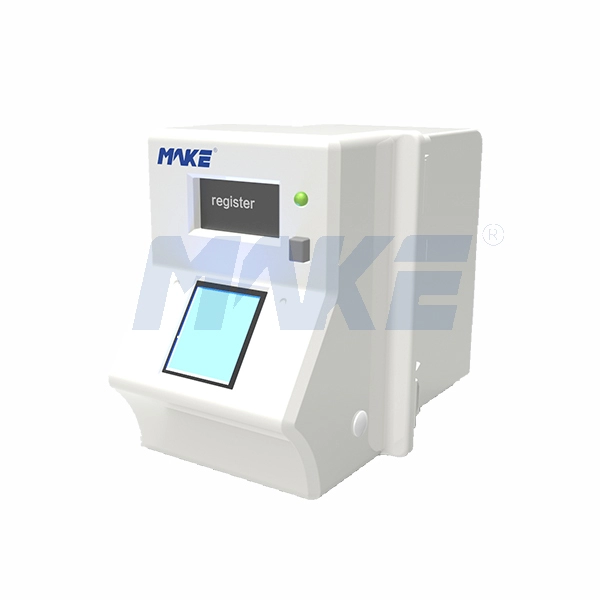As the rapid development of the internet and IoT, smart home and living has become a ubiquitous idea. Of this, the prospect of smart lock is so promising that its price still seems pretty insane. So, what's wrong with those smart lock companies for making such a high price that chokes everyone? And how much does a smart lock actually cost? Let's take a look.
What is smart lock?
Smart locks, including locks with RFID, password, or fingerprint sensor, have been through a lot of iterations. Compared to obviously dumber, old-fashioned, mechanical locks, they are better in safety, management (it is the center part of access control system.), and identifying users.
At present, mechanical locks still dominate the market of home-used lock, while smart locks have overthrown them in commercial and public spaces: The keycard lock commonly used in hotel is a type of sensor lock, and numerous companies have chose locks with password protection for their access control system.
Core components and basic functions of smart lock
The core components of smart lock include: lock cylinder, spring, pin-tumbler, bolt, motherboard, fingerprint sensor, MPU, chip, embedded software, etc.
Basic functions:
1.Unlocking by smartphone, smartwatch, or fingerprint
2.Remote control
3.Sending alerts of intrusion, tracking the opening and closing of door
4.Low power consumption, one-year of battery life (AA battery)
5.High security, protected by smart-home program
Smart lock in smart-home security
Using mechanical lock means you've gotta make sure to bring your key every time you leave home. We all know the consequence if we forget. Well, other than you remembering the lock, it's time for your lock to remember you. With smart lock, there's no need to check if you have brought your fingers, or other parts of your body. As a fundamental equipment of smart-home security, it is, beyond the shadow of a doubt, important.
According to relevant reports, the gross output of lock industry in China has reached 60 billion yuan, of which smart lock industry takes away 10% in 2016. For such a gigantic, tempting market, no wonder many smart-home companies have rushed in launching their allegedly state-of-the-art, smart products, with selling points such as keylessness, being convenient for all family members.
Yet, some of their premature products have caused irritating issues. "After installing about 1000 locks, the cloud service has broken down, this is outrageous." says a hotel manager, who is troubled by the locks' terrible experience for their customers, which, even at its best, will take 30+ second to open the door with a smartphone.

What is smart lock?
Smart locks, including locks with RFID, password, or fingerprint sensor, have been through a lot of iterations. Compared to obviously dumber, old-fashioned, mechanical locks, they are better in safety, management (it is the center part of access control system.), and identifying users.
At present, mechanical locks still dominate the market of home-used lock, while smart locks have overthrown them in commercial and public spaces: The keycard lock commonly used in hotel is a type of sensor lock, and numerous companies have chose locks with password protection for their access control system.
Core components and basic functions of smart lock
The core components of smart lock include: lock cylinder, spring, pin-tumbler, bolt, motherboard, fingerprint sensor, MPU, chip, embedded software, etc.
Basic functions:
1.Unlocking by smartphone, smartwatch, or fingerprint
2.Remote control
3.Sending alerts of intrusion, tracking the opening and closing of door
4.Low power consumption, one-year of battery life (AA battery)
5.High security, protected by smart-home program
Smart lock in smart-home security
Using mechanical lock means you've gotta make sure to bring your key every time you leave home. We all know the consequence if we forget. Well, other than you remembering the lock, it's time for your lock to remember you. With smart lock, there's no need to check if you have brought your fingers, or other parts of your body. As a fundamental equipment of smart-home security, it is, beyond the shadow of a doubt, important.
According to relevant reports, the gross output of lock industry in China has reached 60 billion yuan, of which smart lock industry takes away 10% in 2016. For such a gigantic, tempting market, no wonder many smart-home companies have rushed in launching their allegedly state-of-the-art, smart products, with selling points such as keylessness, being convenient for all family members.
Yet, some of their premature products have caused irritating issues. "After installing about 1000 locks, the cloud service has broken down, this is outrageous." says a hotel manager, who is troubled by the locks' terrible experience for their customers, which, even at its best, will take 30+ second to open the door with a smartphone.


 Español
Español 中文
中文
